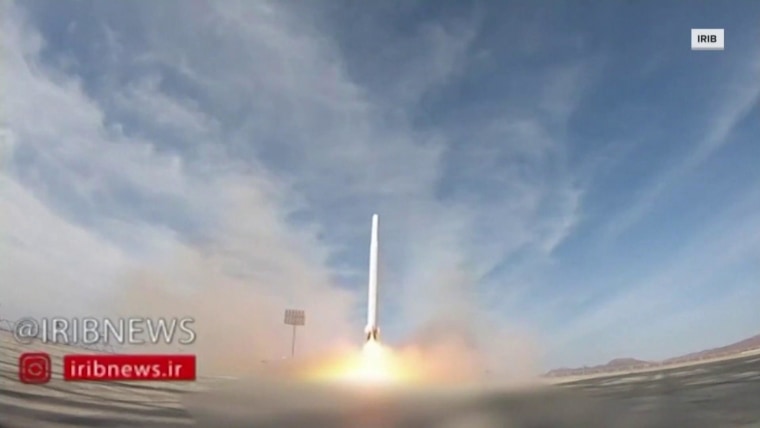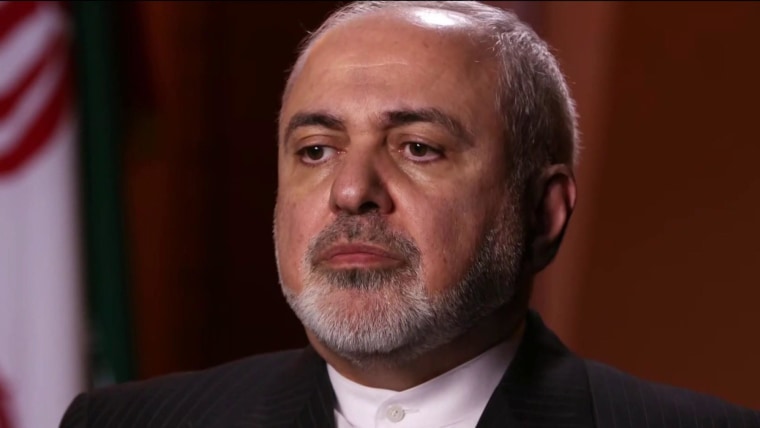WASHINGTON — Secretary of State Mike Pompeo appealed to the UN Security Council Tuesday to extend an expiring arms embargo on Iran, arguing “the world’s most heinous terrorist regime” is a threat to international peace and security and “must be held accountable.”
The international embargo is set to expire in October as part of the 2015 Iran nuclear deal or Joint Comprehensive Plan of Action [JCPOA] signed by Iran, the EU, Germany and the permanent members of the Security Council, including the U.S. The U.S. withdrew from the JCPOA in 2018.
While the U.S. has circulated a proposal to extend the embargo, Russia and China, both veto-wielding members of the Security Council, made clear Tuesday they would not support extending the embargo, and European signatories indicated their priority was preserving the JCPOA.
Speaking after Pompeo, Iranian Foreign Minister Mohammad Javad Zarif told the Council that any change to the agreed timetable is “tantamount to undermining [the JCPOA} in its entirety.”
“The Council must not allow a single state to abuse the process,” said Zarif. “In such a scenario, Iran’s options, as already notified to the remaining JCPOA participants, will be firm.”
Foreign Ministry spokesman Abbas Mousavi warned Monday that should the arms embargo be extended Iran will take action, according to The Tehran Times.
Members of the Security Council had gathered to discuss a new report by the U.N. Secretary General on the embargo, which found cruise missiles and drones used in attacks on Saudi Arabia in the past two years were of Iranian origin.
“Iran is already violating the arms embargo before its expiration date,” Pompeo warned, pointing to the UN report. “If Iran isn’t a threat to peace that demands a collective measure, I don’t know what is. The Council must reject extortion diplomacy.”
Pompeo stopped short of previous threats to pursue the “snapback” of all multilateral sanctions under the JCPOA should the measure fail. The Trump administration has argued the U.S. maintains legal authority under the UN resolution to reimpose sanctions despite U.S. withdrawal in July 2018.
“The United States’ overwhelming preference is to work with this Council to extend the embargo, to protect human life, to protect our national security, and yours,” Pompeo said. The top U.S. diplomat did not remain for the statements of other UNSC members, replaced shortly after his remarks by U.S. Ambassador to the UN Kelly Craft.
China, France, Germany, Russia, the United Kingdom, the EU and Iran remain parties to the deal.
“China opposes the U.S. push for an extended arms embargo on Iran,” said Chinese Ambassador to the UN Zhang Jun, who argued all measures of the nuclear deal should be implemented. “Having quit the JCPOA,” he said, “the U.S. is no longer a participant and has no right to trigger snapback at the Security Council.”
The U.K, Germany and France expressed similar concerns regarding Iran’s procurement of weapons but made clear the priority was preserving the nuclear agreement with Iran. The European members also spoke against unilateral action by the U.S. to snapback sanctions.
U.K. Deputy Representative to the U.N. Jonathan Allen acknowledged lifting of arms restrictions “would have major implications for regional security and stability,” but said preservation of the nuclear deal would be the European members’ “guiding principle.”
“In the absence of a viable alternative,” said Allen, “The agreement provides the best means of achieving our shared objectives on regional security instability upholding the nuclear non proliferation regime and ensuring the continued authority and integrity of the Security Council.”
The meeting was held just one day after Iran’s appeal to Interpol to issue an arrest warrant for U.S. President Donald Trump and others responsible for the drone strike that killed Iranian Revolutionary Guard Corps Quds Force commander Qassem Soleimani. Interpol has denied the request.














